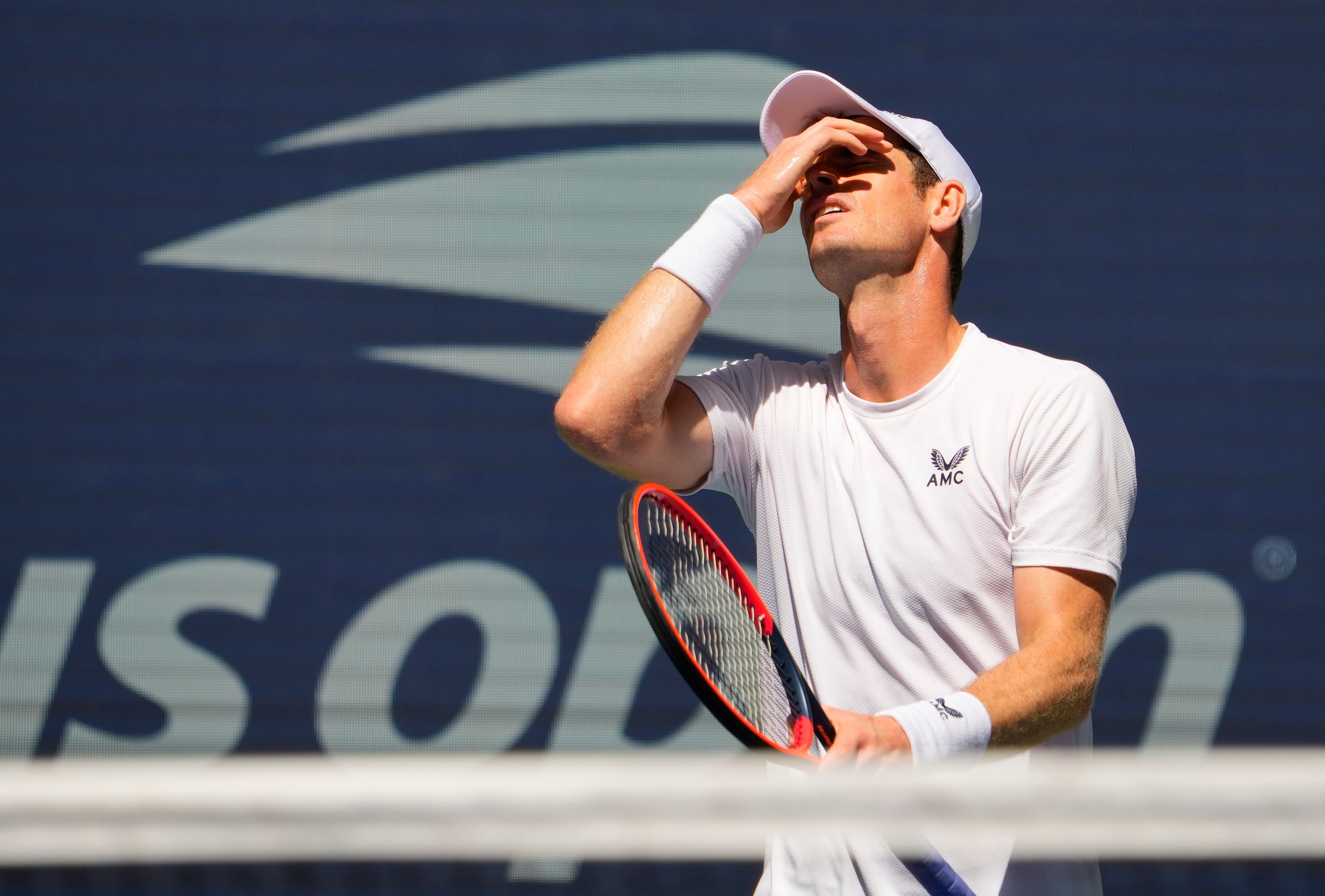Ultimately, Great Britain’s 2024 Davis Cup campaign ended with a whimper, not a bang. The loss of four successive singles matches against Argentina and Canada ultimately led to their exiting the tournament at the last 16 stage, even though they had been fortunate enough to be one of the four group stage “hosts”. Inevitably, there was instant speculation about whether Dan Evans should continue playing or whether Leon Smith should continue captaining. Still, the truth is that Great Britain is struggling to fill the Andy Murray-sized hole in their ranks.
Leon Smith’s Captaincy of Two Halves
Leon Smith has been captain of the Great Britain Davis Cup team since 2010, or for 14 years, which is by far the longest time anyone has ever captained the British men’s tennis team. Having initially been appointed at least in part because he had been one of Andy Murray’s childhood coaches, Smith’s captaincy can be divided into two halves: the first, in which he had a fully fit and firing Andy Murray at his disposal, and the second, in which he has had to cope with an increasingly frail and faltering Andy Murray, culminating in Murray’s retirement from tennis this summer.
The First Half
The first half of Leon Smith’s Davis Cup captaincy was undoubtedly successful; indeed, it was by far the most successful Davis Cup captaincy of any Briton in nearly a century or since the heyday of Fred Perry in the 1930s. On the back of Andy Murray’s own Grand Slam breakthroughs – first, winning the US Open in 2012 and then winning Wimbledon in 2013 – Smith effectively rebuilt the Great Britain Davis Cup team by leaning heavily on Murray’s genius and then finding the supporting cast to help his star man.
That work culminated in 2015, when Murray led Great Britain, almost single-handedly, to their first Davis Cup win in 79 years, defeating Belgium in the final to lift the biggest prize in tennis, if not all of sport. In that remarkable year, Murray played singles and doubles alongside brother Jamie. Thus, he was responsible or partly responsible for winning every point that Great Britain earned throughout that historic campaign, with one notable exception. That was the point that James Ward won when he beat the USA’s John Isner over five sets (when Davis Cup matches were still played over five sets, as they were until 2019 and the complete reorganisation of the tournament) in the first round of the tournament.
In 2016, Great Britain, again led by Murray, almost retained the title, only losing in the semi-final to eventual winners Argentina, and only after Murray lost a genuine five-set epic against Juan Martin del Potro that lasted for over five hours. Argentina went on to win the Davis Cup that year, but having come so close to retaining it, Great Britain seemed set fair for further success under the captaincy of Smith and Murray’s on-court leadership.
The Second Half
Although it was not obvious at the time, 2017 eventually proved to be the turning point for both Andy Murray’s own career and Great Britain’s Davis Cup hopes. After suffering the initial hip injury that would eventually become a chronic, even career-threatening condition at the French Open, Murray was effectively reduced to the status of the walking wounded against Wimbledon, losing meekly to the USA’s Sam Querrey in the semifinal. As we now know, he would never fully recover, such that he never seriously challenged for another Major and ultimately retired earlier this summer after trying everything over many years to rebuild his body.
Throughout that time, Murray was only ever an intermittent Smith’s Davis Cup team member rather than the utterly inspiring and dependable mainstay he had been before. He played Davis Cup tennis again but, just as with his solo career, never at the same level he had reached in his wonder years between 2012 and 2016. And in his increasingly frequent absence, Great Britain never scaled the Davis Cup heights again. They reached the semifinals of the rejigged Davis Cup finals tournament in 2019, losing to hosts Spain, and have never got so far again.
In Team Tennis, One Man Can Make an Entire Tennis Nation
The truth is that in team tennis, one man (or woman) can make an entire tennis nation, i.e. a single, truly great player can inspire and lead a nation to Davis or BJK Cup success that it has never known before. That is not only true of Andy Murray but of The Big Three – Novak Djokovic, Rafael Nadal and Roger Federer – who did so much to deny him more than the three Major Singles titles that he did win throughout his career.
In 2010, Djokovic led Serbia to its first-ever Davis Cup title and, in the process, set himself en route to dominating men’s tennis for the next decade and beyond; in 2014, Roger Federer, ably assisted by another great Swiss player in Stan Wawrinka, finally won the Davis Cup for Switzerland for the first time, which had seemed set to cap his remarkable career until his even more remarkable and Major-winning rebirth of 2017 and 2018; and Spain may be the great superpower of tennis now but they only won their first ever Davis Cup in 2000 and only went on to win multiple Davis Cups when Rafael Nadal came to the fore.
The same can be seen even now with Italy. I have written extensively about The Tennaissance – the remarkable rise of Italian tennis, but notwithstanding the commendable efforts of Jasmine Paolini and Lorenzo Musetti, who have reached Grand Slam finals and semifinals respectively this year, it has largely been led by Jannik Sinner. Fortunately for Italy, although Sinner was rested for their Davis Cup group ties last week following his arduous US Open win, they now have the strength in depth to cover for him.
Great Britain Lacks Talent and Depth of Italy, Others
Unfortunately, Great Britain lacks the strength in depth of Italy and others, notably Spain, who remain on course for a dream Davis Cup final clash with holders Italy after the two nations were kept apart in the final eight of the tournament, which will be staged in Malaga at the end of November. After Andy Murray’s injury-ravaged decline and eventual retirement, Great Britain does not yet have other players who can match his inspirational performances and near-guarantee of singles wins.
That may change if Jack Draper can continue his current trajectory and develop into the Major winner that Murray ultimately became. However, for now, Draper’s breakthrough Major at this year’s US Open, where he reached the semifinal and only lost to eventual champion Sinner, came at an immediate cost to Great Britain’s Davis Cup hopes because he was clearly still fatigued after his New York exertions in his singles matches against Francisco Cerundolo and Felix Auger-Aliassime.
Can Draper be the guy?
The challenge for Draper now is the same challenge that Murray himself initially struggled with, namely maintaining Major-winning or at least Major-challenging form into the Davis Cup ties that, for the foreseeable future at least, will inevitably still follow Grand Slam tournaments. Arguably, Murray himself did not manage to master both going deep in a Major and then performing well in a Davis Cup tie immediately afterward until 2015, when he bounced back brilliantly from losing in the Wimbledon semifinal to Roger Federer to beat Gilles Simon of France in an epic Davis Cup encounter at the Queen’s Club.
If Jack Draper can eventually build the same kind of almost inhuman resilience, such that he can give everything at a Major and then give everything again a week later in the Davis Cup (an achievement that arguably only the greatest male tennis players can achieve), Great Britain can finally begin to fill the Andy Murray-sized hole in their team. And that process will inevitably be helped by both the return from injury of Cam Norrie, who is himself a former Major semifinalist, and the gradual building of a new doubles team after the likely retirement of Dan Evans, with Henry Patten making a fine start by partnering Neal Skupski to victory against Canada’s pairing, even if the overall tie had already been lost by that juncture.
For now, though, Great Britain’s Davis Cup team and captain Leon Smith, in particular, must just hope that Draper can continue his rapid progress this year and eventually translate sustained solo success into sustained team success with his country. Only then will they finally be able to move on from the Andy Murray era and dream again of Davis Cup success in the future.
Main Photo Credit: Robert Deutsch – USA TODAY Sports






